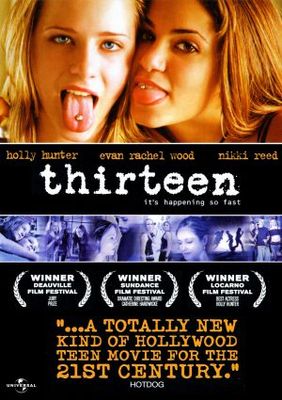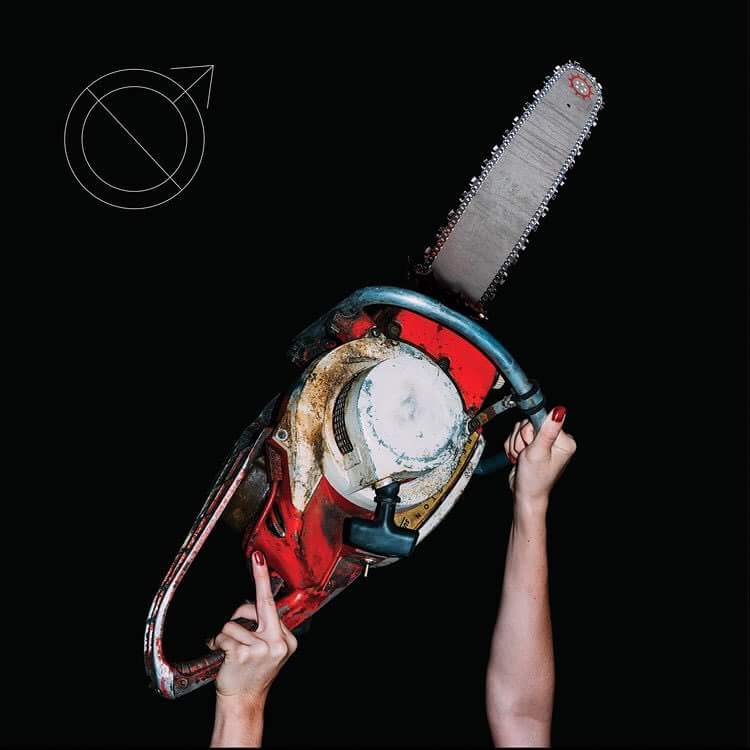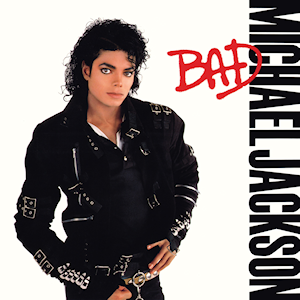We're seeking new members for our 2025 Board of Directors, as well as our founding Associate Board for young professionals 35 and under. Details and application at each of the links above.
The CHIRP Blog
Kevin Fullam writesThe Fourth Wall: Thirteen
Welcome to The Fourth Wall, CHIRP's weekly e-conversation on cinema. This week's subject is the 2003 film Thirteen.
This edition is written by CHIRP Radio volunteers Kevin Fullam and Clarence Ewing.
 Kevin:
Kevin:
Clarence, we were just talking about the challenge of writing for young folks during our discussion of The Florida Project, Penning lines for the teenage set seen in Thirteen might actually be tougher than constructing dialogue for first-graders? It's relatively easy for an adult to serve as a fly on the wall around tykes, but older kids are a far more guarded group.
Cameron Crowe famously went undercover at a California high school in order to mine the material for his landmark book (and later film), Fast Times at Ridgemont High, but here director Catherine Hardwicke goes one better; her co-screenwriter is actress Nikki Reed (age 14 during filming), who mined her own life for this quasi-autobiographical tale.
And what a life that is -- The Wonder Years, this ain't. Reed's Alpha Female, Evie, serves as the gateway for Tracy Freeland (Evan Rachel Wood), who decides to leave behind her nerdy circle of friends and make a concerted effort to move rapidly up her school's social ladder... though this comes with a hefty price. Before long, the two are ditching school, huffing, slugging each other (and self-harming when they're not), and engaging in sexual behavior far more mature than one would wish for a middle-schooler.
All the while, Tracy's relationship with her mom Melanie (Holly Hunter, in an Academy Award-nominated performance) steadily erodes. Melanie, a divorced, harried hairdresser, is bewildered by the hostile stranger that her daughter's become. As a recovering alcoholic who receives scant support from her ex-husband, Melanie is ill-equipped to keep on top of Tracy's life and reign in her wild behavior.
Sophie Holtzmann writesAlbum Review: “Cut” by No Men

If you have not heard of the Chicago band No Men, truly I weep for you. This band relocated from Texas and has done a lot in the years since they’ve been on the scene.
This three-piece act is angry, femme-fronted, vocal supporters of LGBTQ, and are just fantastic artists with a unique sound. Preferably you’ll pause reading this, and listen up on their discography so that you can fully appreciate the importance of their new release, Cut, with Let’s Pretend Records.
This newest release is right on trajectory for our hopes and expectations. Consistent with the sound we know and love, Cut is characterized by a driving percussive pace and diverse melodies. It’s a two track cut and both songs hit that happy balance between aggression, tongue-in-cheek, and empowerment.
Josh Friedberg: Music Historian's Corner writesMichael Jackson Review Extravaganza, Part 2 of 2: Bad, Dangerous, and HIStory
 by Josh Friedberg
by Josh Friedberg
[Read Part One]
After releasing the best-selling album ever, Thriller, in 1982, the expectations for Michael Jackson’s success were understandably high. So by lots of different measures, 1987’s Bad was inevitably a disappointment, but it also showed Jackson’s growth as a songwriter and an artist.
On Thriller, Jackson wrote four songs out of nine, whereas on Bad, he wrote nine songs out of eleven. And despite the clunky and very dated production, Jackson’s voice, though more strained than on Thriller, performs well throughout, especially on ballads like “Man in the Mirror” and “I Just Can’t Stop Loving You,” a duet with Siedah Garrett. He sounds rougher from the get-go, bragging about his edginess on the opening title track and sounding hellbent on obtaining his object of desire on “The Way You Make Me Feel,” a standout hit from the album.
Clarence Ewing: The Million Year Trip writes@CHIRPRADIO (Week of November 13)
New Media
- Amelia Hruby speaks with Ali and Nicole of Upset
- Dylan Peterson interviews Kweku Collins
- Kyle Sanders reviews the 53rd Annual Chicago International Film Festival
- Clarence Ewing and Kevin Fullam discuss sexual assault and harassment in Hollywood
Kevin Fullam writesThe Fourth Wall: Sexual Assault and Harassment in Hollywood
Welcome to The Fourth Wall, CHIRP's weekly e-conversation on cinema. This week's subject is the recent news reports of sexual assault and harassment in the arts and entertainment worlds.
This edition is written by CHIRP Radio volunteers Kevin Fullam and Clarence Ewing.
Clarence:
Kevin, I’m sure you’ve heard about what’s going on with Hollywood mogul and serial rapist Harvey Weinstein. I've been following this story along with the string of others after it and thinking about what it means for the film industry.
While I never followed the details of the personal lives of Harvey or his brother Bob, for the last few decades I have been a huge fan of the company they founded, Miramax (producer and/or distributor of a string of '90s landmarks like Pulp Fiction, Good Will Hunting, The Crying Game, and Clerks).
To me, this was a company that proved quality and profitability are not mutually exclusive in mass-market filmmaking. Even after the Weinsteins sold Miramax to Disney in 1993, they represented the idea that an independent operation could not only compete but be successful in movies, an idea that was inspirational to me and many others.
With the architect of this media miracle now hiding overseas, it’s impossible to ignore the fact that the “casting couch” mentality that so many people (myself included) dismissed as just a fact of life of Tinsel Town is, literally and definitively, rape culture.